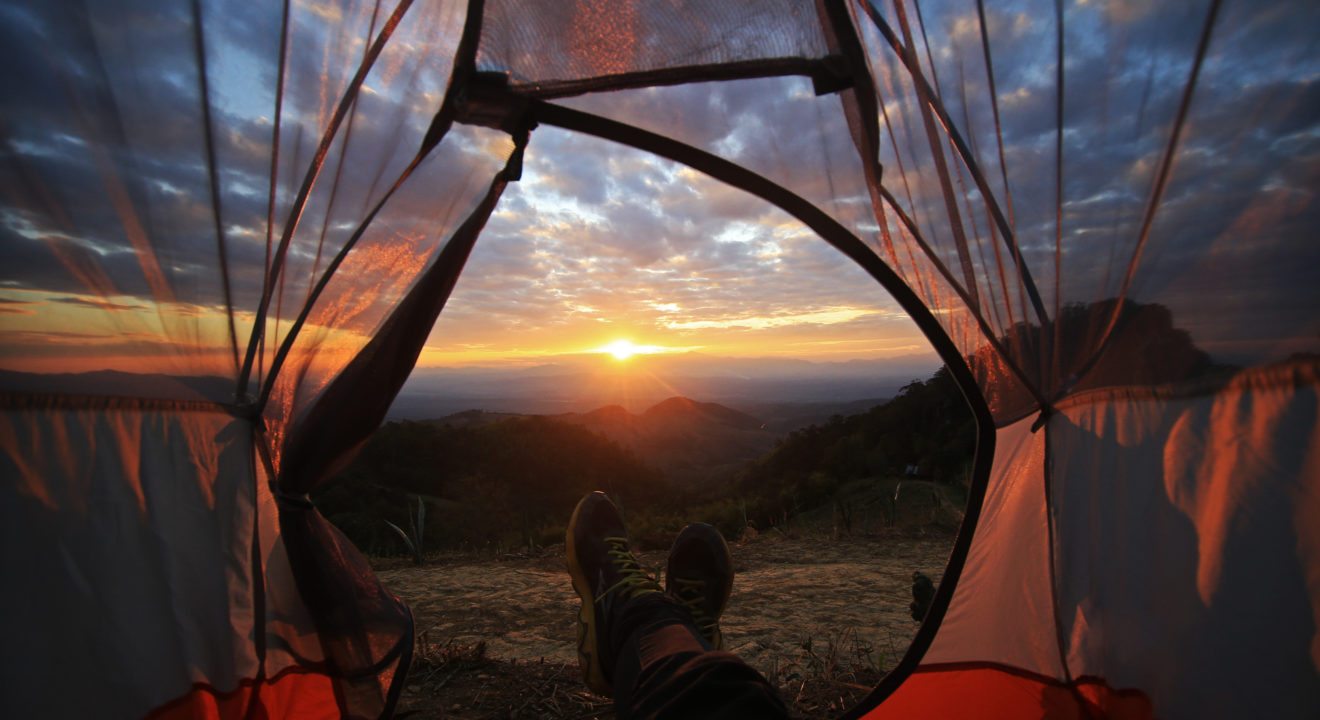Culture April 29, 2017


Imagine walking along a beautiful, sun-lit trail back to your campsite with your family and…your food is gone. All of it. You see claw marks and suddenly the culprit jumps out of the trash dump and scurries away. And then your friend comes running up to you – she’s got poison ivy.
You’re left thinking to yourself, this wouldn’t have happened if I’d known how to keep my food safe, or known which plants were poisonous.
If your camping experiences haven’t been the best, here are 7 basic tips for camping that might help you out next time:
Easy to say, harder to do. The best way you can prevent yourself from forgetting everything is making a check-list. It’s dangerous to go into a grocery store without a list – you usually end up with everything you never needed and nothing you actually needed. With camping, it’s similar. Make a check-list that includes everything: a tent, clothing items, flashlights, lanterns, cooking equipment, food for every meal, sleeping bags, hiking gear, bikes and much more.
Before you leave, go through the checklist again to make sure you have everything. When in doubt, bring a bit more than you think you’ll need – especially food and water. After a fitful night’s sleep and hiking during the day, you’ll be ready for huge meals, and it’ll be a problem if you don’t have enough hotdogs left. Always bring way too much water – you’ll need it for drinking, boiling and washing.
Probably one of the smallest, most annoying mistakes people make on camping trips is not bringing bug spray. You’re outdoors and it is probably summertime – there will be bugs. Even if the brochure says it’s a “low-mosquito” area, bring bug spray and anti-itch cream for the inevitable bites you’ll have even though you swore you put bug spray there. As for poisonous plants, no one likes rashes. Learn about what poison ivy, oak, and sumac look like and bring pictures if necessary.
Although it may cause disruptions during your walks and hikes, it’ll be worth it to check plants along the way. Another important essential is sunscreen – you can never bring enough. When you’re in your tent, which you won’t want to be except for sleeping, you’ll be outside, so bring sunscreen and Aloe Vera for, again, inevitable sunburns.
If you’re at a camping ground, they’ll most likely have pay-by-minute showers and at least a port-a-potty, so you’ll be fine. If you’re alone in the woods, which is not recommended, think about how you’ll shower. If you’re jumping into a river, make sure to bring biodegradable shampoo. Bathrooms should be fine as you can go anywhere, but a week in close quarters with no shower can be dangerously gross.
Disposable plates, bowls, cups and utensils are much easier to just throw away, but if you’re not close to a trashcan, you may have to bring actual dinnerware. If you do, make a washing station that includes four buckets: pre-rinse in hot water (to scrape off any food left), dish soap (to wash with sponge), second rinse (to get soap off) and bleach (only add a capful of bleach to a whole basin of water). You’ll also need a hang-dry station to dry the dishes and towels.
It takes two seconds, but it helps enormously. Always, always wipe your shoes off, or better yet take them off, before getting in a tent. It helps keep the tent from getting gross, but bring a brush if necessary because it will get dirty anyway. Dirt will somehow find its way into every nook and cranny of your tent and your body, you’ll just have to get used to it.
This blog has a lot of tips on keeping the animals at bay: http://blog.cheaperthandirt.com/quick-camping-tip-critter-proof-campsite/
By far the easiest thing you can do is just keep trash out of reach. If you have a car, store it in your car if you’re not taking it to a trashcan right away (which you definitely should, at least every night). Always throw away food far from your campsite and never leave anything out in the open.
It may be hard with cooking, cleaning and planning, but having fun is the most important part of a camping trip. Remember that not everyone will be in a good mood after sleeping on the ground for a few days straight and eating cheap food. Card games, charades, s’mores and other activities can help maximize fun on camping trips. Also remember that you’re going camping for fun, and it shouldn’t be a chore.